Best Real Estate Lead Generation Companies: Complete 2025 Guide for Brokers and Agents
Last updated: September 8, 2025
Best real estate lead generation companies in 2025 (USA) — this guide compares pricing, lead quality, exclusivity, contracts, and ROI so brokers and agents can pick the right vendor confidently.
Introduction
The U.S. real estate market in 2025 presents unique challenges that make lead generation more critical than ever. According to a National Association of Realtors study, the average cost per lead in real estate typically ranges from $25 to $300, with significant regional variations. The recommended visitor-to-lead conversion benchmark in real estate is 2.2%, meaning only a fraction of your marketing efforts will convert to actual prospects.
With mortgage rates creating a “lock-in effect” where over 80% of homeowners have rates below current market levels, inventory remains historically low while buyer demand stays strong. This environment has intensified competition for quality leads, making your choice of lead generation partner a strategic business decision that directly impacts your bottom line.
This comprehensive guide analyzes the top real estate lead generation companies in 2025, providing data-driven insights to help brokers, real estate investment firms, and individual agents make informed decisions. You’ll discover which platforms deliver the highest ROI, avoid costly mistakes that trap agents in ineffective contracts, and implement proven strategies that convert leads into closed transactions.
Understanding the 2025 Lead Generation Landscape
Current Market Conditions
The 2025 real estate market operates under unprecedented constraints. High mortgage rates have created what economists call a “lock-in effect,” where homeowners with sub-4% rates are reluctant to sell and take on higher-rate mortgages. This has resulted in inventory levels that remain 30-40% below historical norms in many markets.
Despite these challenges, buyer demand remains robust, creating intense competition for available properties. For real estate professionals, this means every qualified lead becomes more valuable, and the cost of missing opportunities increases dramatically.
Lead Generation Categories
Modern real estate lead generation falls into three primary categories:
Organic Lead Generation: Building your personal brand through search engine optimization, content marketing, and local community engagement. This approach requires time investment but delivers the highest-converting leads at the lowest cost per acquisition.
Paid Lead Generation: Purchasing advertising space or leads from third-party platforms. This includes pay-per-click campaigns on Google, social media advertising, and lead generation services from companies like Zillow or CINC.
Proactive Prospecting: Direct outreach using data and tools to conduct cold calls, direct mail campaigns, and geographic farming. Companies like REDX specialize in providing the data and tools for this approach.
The most successful agents in 2025 integrate all three methods, using paid services to accelerate results while building sustainable organic systems.
Top Real Estate Lead Generation Companies: Detailed Analysis
Tier 1: Premium Platforms
Zillow Premier Agent
Best For: High-volume buyer lead generation with immediate conversion potential
Pricing: Market-based pricing typically ranges from $20-$60 per lead, with monthly commitments often exceeding $2,000 in competitive markets
Key Features:
- Access to leads from 180+ million monthly Zillow visitors
- Live connections from high-intent buyers
- CRM integration capabilities
- Mobile app for lead management
Zillow reported $2.2 billion in total 2024 revenue, up 15% from 2023, with Q1 2025 revenue reaching $598 million, up 13% year-over-year. This growth demonstrates the platform’s continued dominance in the online real estate space.
Conversion Performance: Top-performing teams report conversion rates of 7-9%, significantly higher than industry averages. However, success requires immediate response capability and strong phone conversion skills.
Pros:
- Highest brand recognition drives quality traffic
- Leads are typically bottom-of-funnel with immediate intent
- Extensive reach across all market segments
- Proven track record with measurable results
Cons:
- Premium pricing makes it accessible primarily to well-capitalized agents
- Shared leads create intense competition
- Requires immediate response capability
- No exclusivity guarantees in most markets
Ideal Agent Profile: Well-capitalized agents or teams with operational systems for handling high-volume, real-time lead response. Best suited for professionals who excel at phone-based sales and can afford higher lead costs in exchange for quality.
CINC (Commissions Inc.)
Best For: Comprehensive lead generation and CRM platform for teams and solo agents focused on long-term nurturing
Pricing: CINC’s pricing starts at $899 per month for solo agents and $1500 per month for teams (includes buyer leads). Pricing varies based on market and property type targeting.
Key Features:
- AI-powered lead qualification and scoring
- Hyperlocal PPC campaign management
- Integrated CRM with automated nurturing sequences
- Guaranteed Sales Program with written ROI commitments
- Premier Google and Meta advertising partnerships
Conversion Performance: CINC focuses on long-term nurturing, with typical lead-to-client conversion timelines extending 12-24 months. The platform reports success through its Guaranteed Sales Program, though this requires consistent agent effort and system utilization.
Pros:
- Comprehensive all-in-one platform eliminates need for multiple tools
- Strong training and support infrastructure
- Written ROI guarantees provide financial protection
- Advanced targeting capabilities for specific demographics
Cons:
- High monthly investment requires significant budget commitment
- Long conversion timelines demand patience and consistent follow-up
- Platform complexity requires training investment
- Success heavily dependent on agent’s follow-up discipline
Ideal Agent Profile: Teams or individual agents with healthy marketing budgets who are committed to long-term relationship building. Best for professionals who prefer systematic approaches over immediate transactional relationships.
Real Geeks
Best For: Tech-savvy agents who want comprehensive control over their lead generation and brand building
Pricing: Starting at $249/month for two users, with additional costs for advertising spend and premium features
Key Features:
- IDX-enabled websites with full customization
- Integrated CRM with lead tracking and automation
- SEO optimization tools and content management
- Optional managed PPC services
- Geek AI for automated lead engagement
Conversion Performance: Platform users report an average 600% ROI, though results vary significantly based on individual agent effort and marketing spend.
Pros:
- Full control over branding and lead nurturing process
- Comprehensive website and CRM integration
- Strong community support and training resources
- Flexible pricing structure allows gradual investment scaling
Cons:
- Requires technical knowledge and ongoing management
- Success heavily dependent on agent’s marketing efforts
- Additional advertising spend required for lead generation
- Learning curve for maximizing platform capabilities
Ideal Agent Profile: Technology-comfortable agents who want to build their own brand and have the time to invest in learning platform capabilities. Best for professionals who prefer ownership of their lead generation process rather than dependency on third-party lead sources.
Tier 2: Specialized Solutions
BoldLeads
Best For: Exclusive seller lead generation with territory protection
Pricing: Monthly fees range from $269-$569 plus advertising spend, with annual contracts typically required
Key Features:
- Exclusive territory agreements
- Facebook advertising campaign management
- Automated follow-up sequences
- Lead nurturing through multiple touchpoints
- Seller-focused lead qualification
Conversion Performance: Focuses specifically on seller conversions, with success rates dependent on local market conditions and agent follow-up consistency.
Pros:
- Territory exclusivity eliminates competition from other platform users
- Comprehensive marketing services reduce agent workload
- Focus on seller leads provides higher commission opportunities
- Established track record in multiple markets
Cons:
- Long-term contract commitments limit flexibility
- High advertising costs on top of platform fees
- Success varies significantly by geographic market
- Limited buyer lead generation capabilities
Market Leader
Best For: Agents seeking guaranteed monthly lead delivery with established CRM integration
Pricing: Monthly fees starting at $129-$189, with additional costs for premium features and higher lead volumes
Key Features:
- Guaranteed monthly lead delivery
- Built-in CRM with automated campaign capabilities
- Lead scoring and qualification tools
- Multiple lead sources including PPC and social media
- Training and support programs
Conversion Performance: Platform promises exclusive leads, though user feedback varies significantly regarding lead quality and conversion rates.
Pros:
- Established reputation with long track record
- All-in-one platform combines lead generation and CRM
- Guaranteed lead delivery provides predictable pipeline
- Training resources for new agents
Cons:
- Limited analytics and reporting capabilities
- No free trial period for evaluation
- User feedback indicates inconsistent lead quality
- Platform limitations compared to newer competitors
REDX
Best For: Proactive prospecting with expired listings, FSBOs, and pre-foreclosure data
Pricing: Starting at $59.99/month for basic plans, with premium tiers offering additional features and data access
Key Features:
- Power dialer with local presence technology
- Expired listing and FSBO databases
- Geographic targeting and list building tools
- Property and homeowner data integration
- Call tracking and performance analytics
Conversion Performance: Success heavily dependent on agent’s cold calling skills and persistence, with high-intent seller leads providing strong conversion potential for skilled prospectors.
Pros:
- Affordable entry point for new agents
- Specialized focus on high-intent seller leads
- Comprehensive prospecting tools and data
- Proven methodology for agents comfortable with cold calling
Cons:
- Requires strong phone sales skills and high rejection tolerance
- Success depends entirely on agent effort and persistence
- Limited support for agents uncomfortable with cold calling
- Data quality varies by market and region
Tier 3: Budget-Friendly Options
Realtor.com Connections Plus
Best For: Balanced approach to buyer and seller lead generation with brand recognition benefits
Pricing: Market-based pricing varies by location and competition level
Key Features:
- Mobile app for immediate lead response
- Automated follow-up capabilities
- Integration with popular CRM systems
- Performance tracking and analytics
Conversion Performance: Leads typically represent transaction-ready prospects, though conversion rates vary based on market competition and agent response time.
Pros:
- Quality leads from active property shoppers
- Strong brand recognition drives qualified traffic
- Automation features reduce manual follow-up workload
- Competitive pricing in most markets
Cons:
- Non-exclusive leads create competition with other agents
- Limited customer support transparency
- Success heavily dependent on response time
- Platform features less comprehensive than premium competitors
Offrs
Best For: Predictive analytics approach to identifying potential sellers before they list
Pricing: Starting at $200/month with territory exclusivity options
Key Features:
- Predictive farming algorithms
- Territory exclusivity agreements
- Automated marketing campaigns
- Pre-market seller identification
- Performance tracking and ROI measurement
Conversion Performance: Data-driven approach aims to improve targeting efficiency, though results vary based on market conditions and agent follow-up strategies.
Pros:
- AI-powered insights for strategic prospecting
- Exclusive territory rights reduce competition
- Pre-market identification provides timing advantages
- Automated systems reduce manual prospecting workload
Cons:
- Newer platform with limited long-term performance data
- Success depends on predictive algorithm accuracy
- Limited market penetration in some regions
- Higher learning curve for traditional agents
Major Pain Points in Real Estate Lead Generation
High Lead Costs vs. Low Conversion Rates
The fundamental challenge facing real estate professionals in 2025 is the growing disconnect between lead acquisition costs and actual conversion rates. The average cost per lead in real estate is between $30 and $50, but industry data shows that conversion rates often fall below expectations.
Research indicates that 78% of deals go to the first agent to respond, yet many professionals struggle with response time optimization. 42.83% of leads ended up dead for real estate investors using REsimpli in 2024, highlighting the challenge of lead quality and follow-up effectiveness.
Key Issues:
- Rising cost per lead across all major platforms
- Conversion rates averaging 0.5-2% for most lead sources
- Competition intensity requiring faster response times
- Need for 50-100+ leads to generate one closing
Lead Quality and Verification Problems
Multiple industry reports and user feedback highlight significant issues with lead authenticity and qualification. Common problems include fake leads generated by bots, recycled leads sold to multiple agents simultaneously, and prospects with outdated or incorrect contact information.
Specific Challenges:
- Leads generated through click farms or automated systems
- Shared leads creating bidding wars between agents
- Prospects unaware they submitted inquiries
- Inconsistent qualification standards across platforms
Technology and Follow-Up Challenges
Modern lead generation requires sophisticated technology integration and immediate response capabilities. Many agents struggle with CRM implementation, automated nurturing system setup, and lead attribution tracking.
Common Issues:
- Complex platform integration requiring technical expertise
- Overwhelming lead volumes requiring manual filtering
- Lack of automated nurturing sequences
- Poor tracking and attribution measurement
- Difficulty maintaining consistent follow-up schedules
Market Competition and Saturation
The lead generation marketplace has become increasingly competitive, with platforms favoring high-volume producers and advertising costs rising due to increased competition for limited inventory.
Competitive Challenges:
- Territory restrictions limiting growth opportunities
- Platform algorithms favoring established agents
- Rising advertising costs reducing profit margins
- Difficulty differentiating services in saturated markets
Value Propositions of Professional Lead Generation Services
Time Efficiency and Business Scalability
Professional lead generation services provide significant operational advantages by eliminating the need for manual prospecting and allowing agents to focus on conversion activities. This scalability enables predictable business growth through consistent lead flow.
Primary Benefits:
- Time savings allowing focus on high-value activities
- Predictable lead flow supporting business planning
- Professional targeting more effective than manual methods
- Operational efficiency through automated systems
Advanced Technology and Analytics
Modern platforms offer sophisticated tools that individual agents cannot develop independently. These include AI-powered lead scoring, predictive analytics for seller identification, and automated nurturing sequences that maintain prospect engagement.
Technology Advantages:
- Machine learning algorithms for lead qualification
- Predictive analytics identifying high-probability prospects
- Automated marketing sequences maintaining engagement
- Performance tracking and ROI analysis tools
- Integration capabilities with existing business systems
Market Expertise and Professional Support
Established lead generation companies provide valuable industry knowledge, best practice guidance, and technical support that helps agents optimize their conversion processes.
Support Benefits:
- Dedicated account management and training programs
- Market insights and trend analysis
- Best practice sharing from successful implementations
- Technical support for platform optimization
- Ongoing strategy consultation and adjustment
Warning Signs of Lead Generation Scams and Low-Quality Services
Red Flags to Avoid
Upfront Fee Scams: Companies requiring substantial activation fees before providing leads typically operate fraudulent business models. Legitimate services charge monthly fees based on performance and lead delivery.
Lead Quality Issues: Providers unable to demonstrate lead sources, provide sample leads, or explain generation methodology often deliver low-quality prospects or recycled data from multiple sources.
Business Practice Warning Signs: High-pressure sales tactics, limited-time offers, difficulty reaching customer service, and suspicious review patterns indicate potentially fraudulent operations.
Protecting Your Investment
Due Diligence Best Practices:
- Research company reputation through multiple independent sources
- Request detailed lead samples and generation methodology explanations
- Verify lead exclusivity claims and territorial rights
- Check Better Business Bureau ratings and complaint resolution patterns
- Avoid companies requiring large upfront payments
Contract Protection:
- Negotiate trial periods before long-term commitments
- Ensure clear cancellation terms and refund policies
- Verify performance guarantees in writing
- Understand territorial restrictions and competition policies
Lead follow-up playbook: speed-to-lead, cadences, and systems to turn more paid/portal leads into closings.
Comprehensive FAQ Section
Q1: What should I realistically expect to spend on lead generation in 2025?
Industry experts recommend budgeting 15-25% of gross commission income for lead generation activities. For new agents, this percentage should be closer to 10-15% until establishing steady income streams. For real estate professionals, CPL varies widely based on location, property types, and marketing channels, with effective monthly spending typically ranging from $1,000-$2,000 for consistent results.
Consider your total marketing investment, not just lead costs. This includes CRM expenses, advertising spend, and time investment in follow-up activities. A reasonable target is generating 10-15% ROI on marketing spend, with 20%+ considered excellent performance.
Q2: How quickly should I respond to leads, and what follow-up schedule works best?
Speed is the most critical factor in lead conversion success. Research consistently shows that 78% of deals go to the first responding agent, with conversion rates dropping dramatically after the first five minutes.
Optimal Response Strategy:
- Initial response: Under 5 minutes for maximum conversion potential
- Follow-up schedule: 60% of prospects say no four times before agreeing
- Long-term nurturing: 10% of leads will transact within 12 months regardless of initial interest
- Multiple touchpoints: Use phone, email, and text messaging for comprehensive contact
Implement automated systems for immediate response when you’re unavailable, but prioritize personal contact within the first hour for highest-intent leads.
Q3: Should I focus on buyer leads, seller leads, or both?
The current market conditions favor a seller-focused strategy. Listing inventory remains historically low, making each listing extremely valuable for generating buyer interest and attracting additional seller prospects.
Strategic Considerations:
- Seller leads: Higher commission potential and additional buyer attraction
- Buyer leads: Higher volume but increased competition and longer conversion cycles
- Market conditions: Low inventory makes listings more valuable than typical market cycles
- Resource allocation: Seller leads often require more prospecting effort but deliver higher ROI
Most successful agents pursue a blended approach, using different strategies for buyer and seller acquisition while adapting to local market conditions.
Q4: What conversion rates should I expect from different lead sources?
Conversion rates vary significantly based on lead source quality, agent follow-up consistency, and market conditions. Understanding realistic expectations helps evaluate platform performance and adjust strategies accordingly.
Typical Conversion Rates by Source:
- PPC/Search leads: 1-2% immediate conversion, 8-12% within 12 months
- Social media leads: 0.5-1% immediate conversion, 5-8% within 12 months
- Platform leads (Zillow, Realtor.com): 7-9% for top-performing teams
- Referral leads: 25-40% conversion rate with proper nurturing
- Sphere of influence: 40-60% conversion rate for repeat and referral clients
Focus on cost per closing rather than cost per lead for accurate ROI measurement. A $100 lead that converts 10% of the time is more valuable than a $20 lead that converts 1% of the time.
Q5: How can I improve my lead conversion rates with existing leads?
Lead conversion improvement requires systematic approach to follow-up, value delivery, and relationship building. Most agents focus on generating more leads rather than optimizing conversion of existing prospects.
Proven Conversion Strategies:
- Implement immediate response systems (under 5-minute target)
- Use video messaging for personal connection and differentiation
- Provide market value before requesting business meetings
- Leverage CRM automation for consistent follow-up scheduling
- Track lead sources and focus budget on highest-converting channels
- Develop expertise in specific neighborhoods or property types
The most significant conversion improvements typically come from response time optimization and consistent long-term nurturing rather than lead volume increases.
Q6: Should I buy leads or focus on generating my own organic traffic?
The optimal strategy combines both approaches, using purchased leads for immediate pipeline development while building organic systems for long-term sustainability and reduced dependency on paid sources.
Hybrid Approach Benefits:
- Purchased leads: Immediate volume, proven targeting, professional systems
- Organic leads: Lower cost per acquisition, higher conversion rates, brand building
- Risk management: Multiple lead sources reduce dependency on single platforms
- Scaling flexibility: Adjust investment based on conversion performance
Start with purchased leads while simultaneously building organic capabilities through content marketing, SEO optimization, and sphere of influence development. Long-term goal should be reducing dependency on purchased leads through referrals and repeat business.
Q7: What metrics should I track to measure lead generation ROI accurately?
Tracking the right metrics enables data-driven decision making and platform optimization. Most agents focus on vanity metrics like lead volume rather than conversion and profitability indicators.
Essential Performance Indicators:
- Cost per lead (CPL): Total marketing spend ÷ number of leads received
- Cost per appointment: Marketing investment ÷ appointments scheduled
- Cost per closing: Total marketing cost ÷ transactions closed
- Lead-to-appointment conversion rate: Appointments ÷ total leads received
- Appointment-to-closing ratio: Closings ÷ appointments completed
- Customer lifetime value: Average commission × repeat/referral multiplier
Track performance by lead source to identify highest-performing platforms and optimize budget allocation accordingly.
Q8: How do I avoid getting locked into ineffective long-term contracts?
Contract terms significantly impact your ability to adjust strategies based on performance results. Many agents sign long-term agreements before understanding platform effectiveness or changing market conditions.
Contract Protection Strategies:
- Negotiate trial periods (30-60 days) before annual commitments
- Require performance guarantees with specific metrics and timelines
- Ensure clear cancellation terms with reasonable notice periods
- Avoid contracts requiring upfront annual payments
- Verify territory exclusivity claims and competition policies
- Document all verbal promises in written contract amendments
If considering long-term contracts, verify company reputation through multiple independent sources and understand all fees and restrictions before signing.
Q9: What’s the difference between exclusive and shared leads, and why does it matter?
Lead exclusivity significantly impacts conversion rates and ROI. Understanding the difference helps evaluate true platform value and set realistic performance expectations.
Exclusive vs. Shared Lead Impact:
- Exclusive leads: Sold to only one agent, higher conversion rates, premium pricing
- Shared leads: Sold to multiple agents, lower conversion rates, competitive pricing
- Competition factor: Shared leads create bidding wars and reduced profit margins
- Response time: Exclusive leads allow more thoughtful nurturing approaches
- Long-term value: Exclusive relationships build stronger client connections
Exclusive leads typically convert 3-5 times higher than shared leads, justifying premium pricing for agents who can afford the investment.
Q10: How do I determine if a lead generation platform is right for my business model?
Platform selection should align with your business goals, budget constraints, skill set, and market conditions rather than choosing based solely on marketing promises or competitor recommendations.
Evaluation Framework:
- Budget alignment: Can you sustain monthly costs for 6-12 months minimum?
- Skill set match: Does platform require capabilities you possess or can develop?
- Market conditions: Does platform approach fit your local market dynamics?
- Time investment: Do you have resources for platform learning and optimization?
- Integration capability: Will platform work with your existing business systems?
- Support requirements: Does company provide adequate training and ongoing assistance?
Test platforms with short-term commitments when possible and measure performance against your specific business objectives rather than generalized industry benchmarks.
Q11: What should I do if I’m not getting quality leads from my current platform?
Poor lead quality is a common issue that requires systematic diagnosis and potential platform changes. Understanding the root cause helps determine whether problems are fixable or require platform switching.
Diagnostic Steps:
- Track lead response rates and conversion metrics for 30-60 days
- Document lead quality issues with specific examples
- Verify lead sources and generation methods with platform support
- Compare performance against platform-provided benchmarks
- Test different follow-up approaches and timing strategies
- Review contract terms for performance guarantees or cancellation options
If quality doesn’t improve after optimization efforts and platform support, consider transitioning to alternative providers with trial periods to verify better performance.
Q12: How do I balance multiple lead sources without overwhelming my follow-up capacity?
Managing multiple lead sources requires systematic organization and realistic capacity planning. Most agents underestimate the time required for proper lead nurturing and become overwhelmed with volume.
Capacity Management Strategies:
- Calculate realistic follow-up capacity based on available time
- Use CRM automation for initial response and basic nurturing
- Prioritize lead sources by conversion rates and profitability
- Implement lead scoring systems to focus on highest-potential prospects
- Schedule specific times for lead follow-up activities
- Consider hiring virtual assistants for initial qualification
Start with one or two platforms and expand capacity gradually as systems and processes become optimized for efficiency.
Conclusion
The real estate lead generation landscape in 2025 demands strategic thinking rather than reactive purchasing decisions. Success requires understanding that lead generation platforms are tools that amplify your existing skills and systems, not magic solutions that automatically produce clients.
Key Strategic Takeaways:
Platform Selection: Choose services that align with your business model, budget capacity, and skill set rather than following competitor strategies or marketing promises. Premium platforms like Zillow Premier Agent and CINC require significant investment but offer comprehensive systems for agents ready to commit resources and effort.
Conversion Focus: Prioritize lead conversion optimization over volume generation. The recommended visitor-to-lead conversion benchmark in real estate is 2.2%, meaning most improvement opportunities exist in nurturing and follow-up rather than lead acquisition.
Financial Planning: Budget 15-25% of gross commission income for lead generation, with new agents starting at 10-15%. Track cost per closing rather than cost per lead for accurate ROI measurement. Target 10-15% ROI as good performance, with 20%+ representing excellent results.
Technology Integration: Implement CRM systems and automated follow-up sequences regardless of platform choice. The most successful agents combine purchased leads with organic generation strategies, using technology to automate routine tasks while maintaining personal relationship building.
Performance Measurement: Track essential metrics including cost per closing, conversion rates by source, and customer lifetime value. Focus budget on highest-performing platforms and continuously optimize based on actual results rather than vanity metrics.
Risk Management: Avoid long-term contracts without trial periods, verify company reputations through multiple sources, and maintain diverse lead sources to reduce dependency on single platforms.
Sources
Primary Company Sources:
- Zillow Group Investor Relations (investors.zillowgroup.com)
- CINC Pro Platform Information (AgentFire, CINC Pro)
- Real Geeks Pricing (MoxiWorks)
- Market Leader Reviews (HousingWire)
- REDX Platform Features (theredx.com)
Industry Analysis:
- National Association of Realtors Market Data
- Ruler Analytics Conversion Benchmarks (via The Close)
- REsimpli Lead Performance Study
- HousingWire Market Analysis
- Use Hatch App Inventory Data
- Capterra Compliance Guidelines
Market Research:
- The Close Industry Reports
- HousingWire Lead Generation Studies
- Facebook Mortgage Rate Analysis
- Real Estate Business Intelligence Sources
All pricing and performance data verified as of September 8, 2025. Market conditions and platform offerings subject to change.
Ready for Implementation: This guide provides the strategic framework and detailed analysis needed to make informed lead generation decisions in 2025’s competitive market environment. Success depends on aligning platform choice with your business model, budget capacity, and follow-up capabilities while maintaining strict compliance with industry regulations.

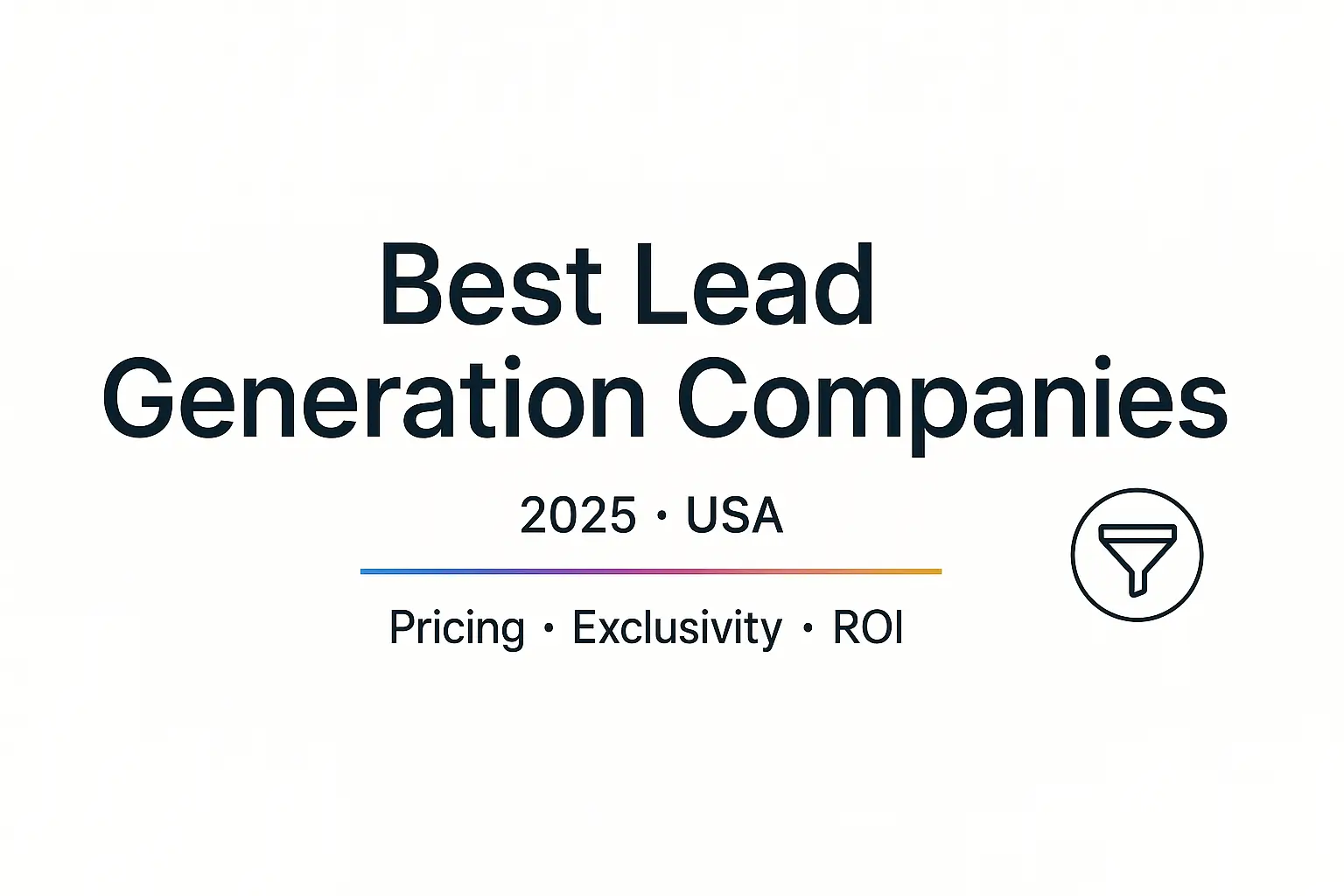
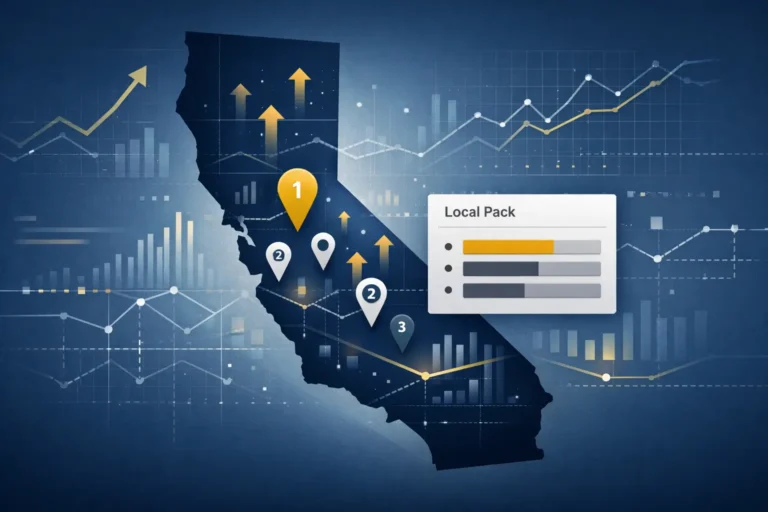

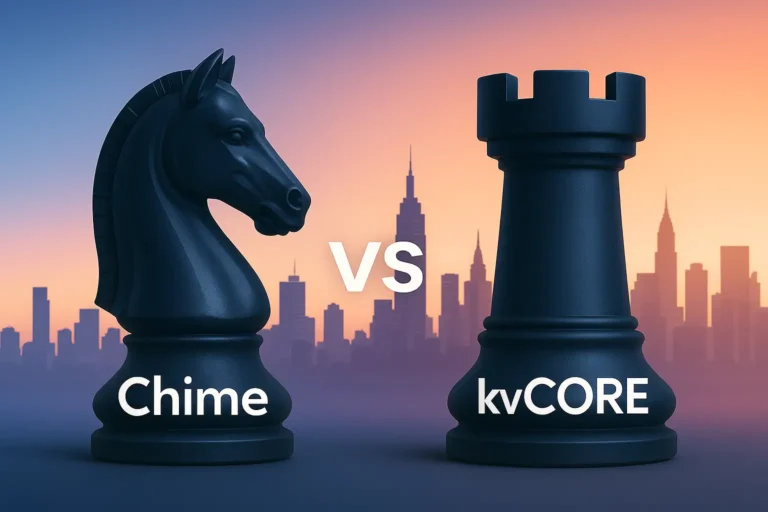
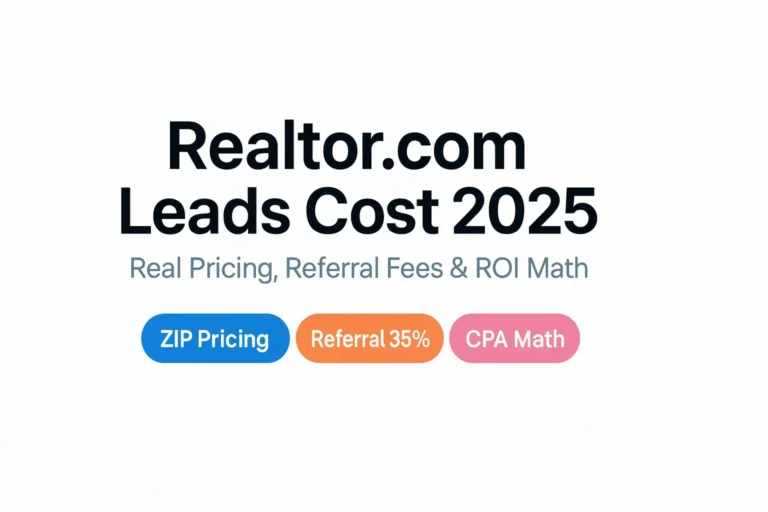

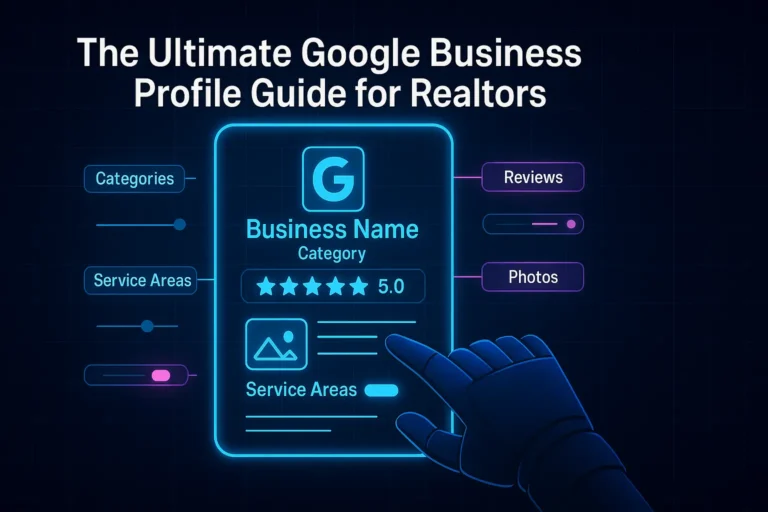
6 Comments